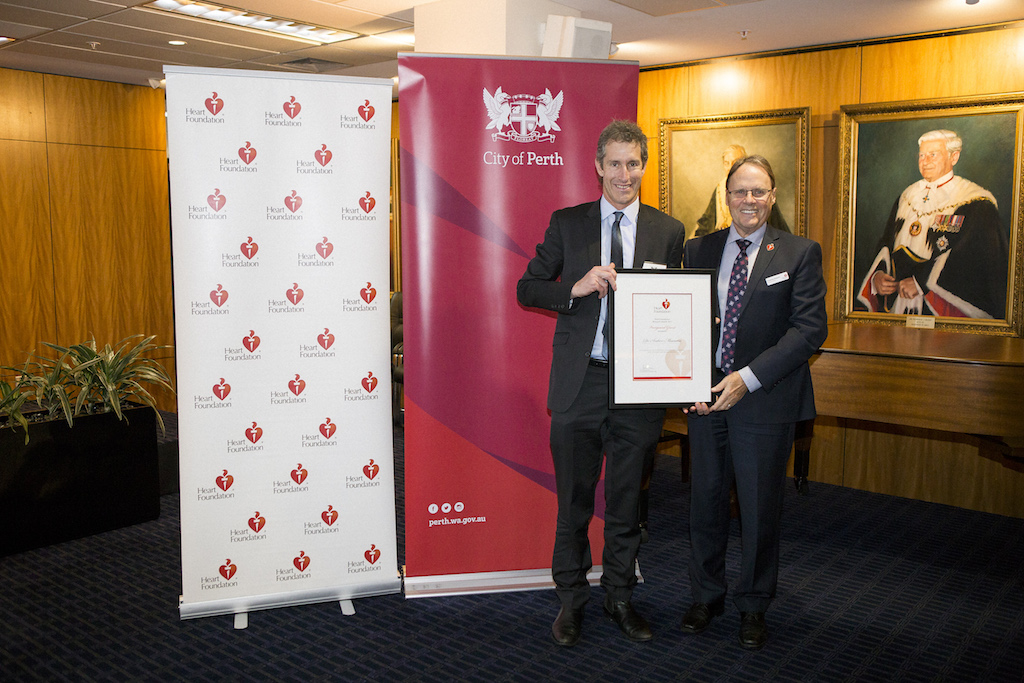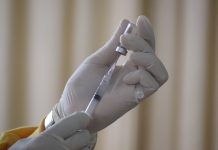
IT’S the kind of pain that can strike at any age, day or night, sometimes a searing pain or something that creeps up quietly with few or no symptoms.
Heart attack is one of the ways people experience heart disease, which is the leading cause of death in Australia. Statistics are improving but there is still much work to be done.
Since 1959 the Heart Foundation nationally has invested $557 million into the causes, treatment and prevention of heart, stroke and blood vessel disease.
Vital research Australia-wide has led to important breakthroughs such as the introduction of pacemakers, coronary care units in hospitals and trials of a vaccine to prevent rheumatic heart disease.
The foundation’s WA division, based in Subiaco, runs programs across WA including the southwest and Pilbara.
Donations from the community help fund world-class research, developing guidelines for health professionals, support patient care for people living with heart disease, help Australians live healthier lifestyles and advocate to government and industry to improve heart health.
Each year in June the Heart Foundation focuses on women and heart disease. This year, the Making the Invisible Visible campaign looked at high blood pressure during pregnancy which can lead to heart disease later in life.
According to Heart Foundation WA clinical engagement co-ordinator Shelley McRae while more Australian men will be hospitalised with a heart attack, as a percentage, heart disease takes roughly the same number of lives of both men and women.
“This highlights that the health outcomes for women experiencing heart disease are worse,” she says.
“When admitted to hospital, many of the standard heart related procedures are not administered on women in the same timeliness that they are for men. Women are also less likely to be referred to and to complete a year round program of cardiac rehabilitation after a heart attack, which would reduce their chances of having a second one.
“Many people think that heart disease is an old man’s disease, but the fact is heart disease doesn’t discriminate; it affects both genders. If we are to protect the heart health of current and future generations of Australian women, there is an urgent need to do more.”
Those aged over 45 (35 for Aboriginal and Torres Strait Islander people) should see their GP for a heart health check.
The Heart Foundation is urging women to familiarise themselves with the warning signs of heart attack – because they are often not what people expect – and to call triple zero (000) without delay. Signs are not necessarily sudden or severe and some people don’t experience chest pain at all.
Symptoms can include shortness of breath, jaw, shoulder, neck and back pain, feeling nauseous or generally unwell.
Women tend to experience these less obvious symptoms but only one in four women are aware of at least one of these.
Women are also less likely to see the symptoms as representing a life-threatening emergency than men. This then impacts the time it takes to diagnose and treat women once they present to emergency departments.
In ongoing research in WA, Associate Professor Andrew Maiorana of Curtin University is studying with other researchers to find out if adding exercises in water to a workout helps bring more benefits for heart health.
To find the answer, they have been conducting a randomised, controlled study tracking the effects of 12 weeks of moderate intensity water-based or gym-based exercise workouts on blood vessel health and function, brain blood flow, fitness strength, body composition and blood test parameters. All those taking part have coronary heart disease.
Professor Maiorana said it is known that when exercise is performed in water, the response of the cardiovascular system are different to land-based exercise.
In another program, Dr Yu Suk Choi, of the University of WA, is involved in a project looking at whether raising stem cells in an environment that mimics the biophysical properties of heart tissue has a potential to regenerate heart muscle cells.
The Heart Foundation WA will hold its HeartCare Red Hot Winter Ball on 11 August at Crown Perth. The gala evening will help raise vital funds for heart disease prevention and research. Ticket enquiries waevents@heartfoundartion.org.au or phone 9388 3343. To buy tickets direct go to – www.humanitix.com/event/red-hotwinter-ball/.


































